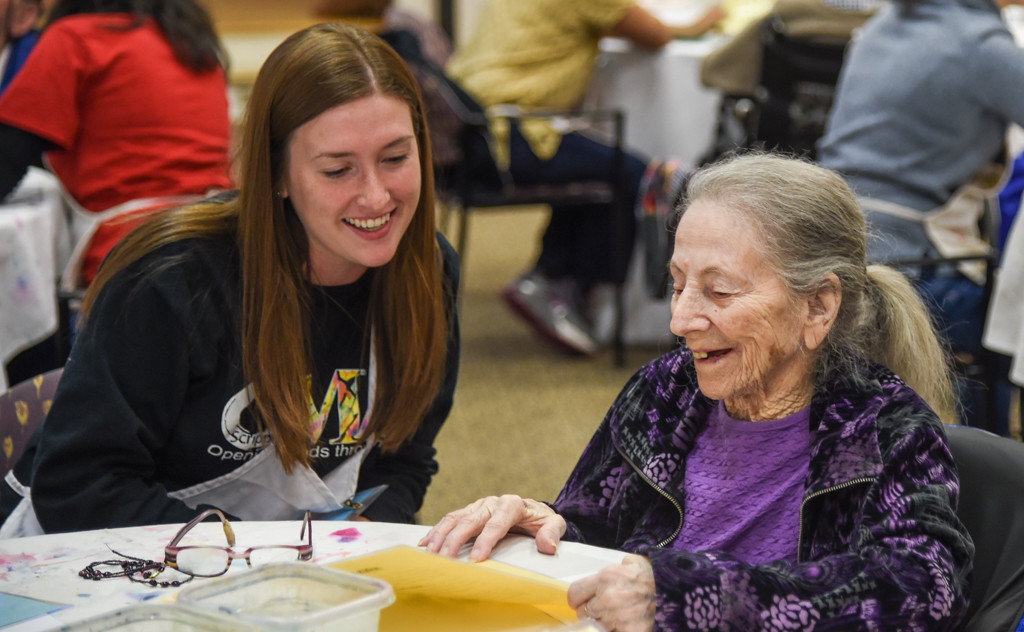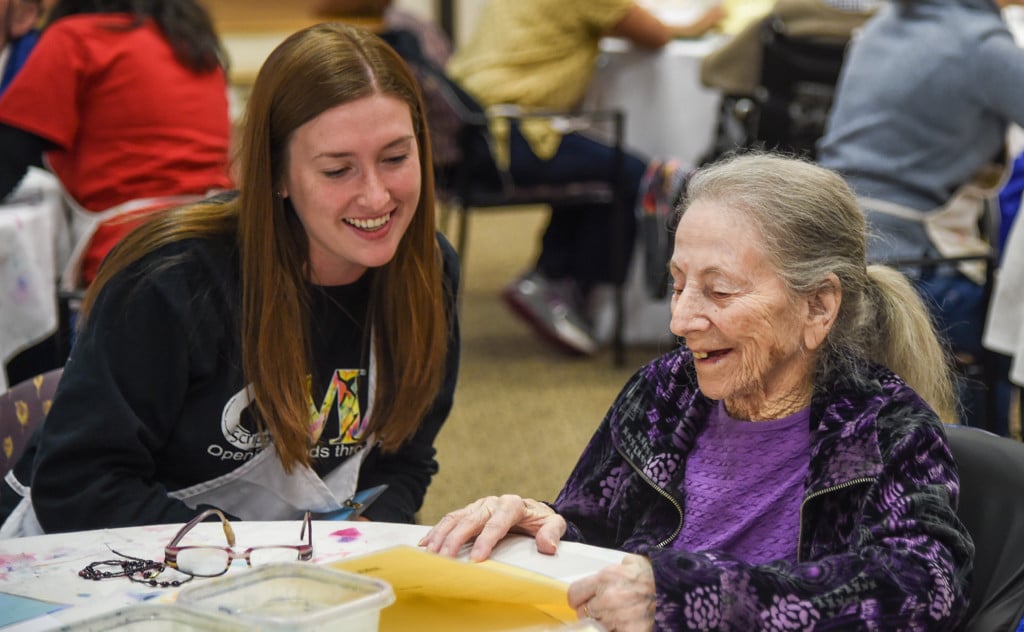Opening Minds Through Art Sparks Intergenerational Connections


"This just makes me happy from heel to toe!" exclaimed one older adult from the OMA (Opening Minds Through Art) program.
A college student shared this about OMA - "Most classes in college, you attend so that YOU can get a good grade on the exam, so YOU can get a good GPA so that YOU can get a good job. But OMA is different. This class focuses on enriching the lives of others, and that is what gets me out of bed every Thursday morning."
Opening Minds through Art (OMA) is an award-winning, evidence-based, intergenerational art-making program for people with Alzheimer's disease and other forms of neurocognitive disorders. Its failure-free program provides opportunities for creative self-expression and social engagement for people with dementia. OMA also provides volunteers with opportunities to improve their attitudes toward aging through regular interaction with OMA program participants.
OMA was founded by Dr. Elizabeth "Like" Lokon in 2007 and is grounded in person-centered care principles. It is headquartered at Scripps Gerontology Center, an Ohio Center of Excellence at Miami University. People with dementia (artists) are paired with volunteers (students, families, caregivers) who are trained to rely on imagination instead of memory and focus on remaining strengths instead of lost skills. OMA enables people with dementia to assume new roles as artists and teachers and leave a legacy of beautiful artwork.
A qualitative analysis of 300 journals written by 59 students participating in the Opening Minds Through Art intergenerational art program for people with dementia revealed that facilitating the creative expressions of elders with dementia resulted in many positive gains for college students. The experience enhanced their academic learning, and they felt rewarded for making a difference in the lives of others. Their attitudes toward the elders became more positive, and they were able to build genuine and reciprocal relationships with the elders. In the students' eyes, the elders were artists, teachers, and friends.
In another study, after one semester, results showed that OMA participation is significantly positively associated with students' Affection, Comfort, Kinship, Engagement, and Enthusiasm toward older adults living with dementia. We conclude that increasing students' allophilia towards older adults living with dementia is necessary and possible through well-designed intergenerational experiences.
OMA's approach to bridging intergenerational connections is a powerful tool in person-centered care, its flexibility as a no-failure program brings unprecedented joy to care partners, whether they are students, family members, volunteers, or staff.
Building human connections, improving quality of life, and achieving this through the arts are adaptable to virtually any environment, making this program an innovative community-facing program.
When a program incorporates the flexibility to be outward-focused, it not only enhances the lives of people living in care communities but opens doors of opportunities for those living at home, who visit libraries, senior activity centers, memory cafes, adult day programs, university-sponsored programs, and more. It is a heart and soul program that support and enhances dementia-friendly communities across the globe.
For more information on the OMA Intergenerational Arts Programming for People Living with Dementia certification course
Read the press release here


